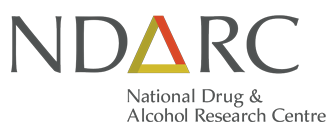
Young people with multiple and complex needs represent a minority of young people but they experience a disproportionately high burden of harm. This is often due to a complex history of childhood disadvantage, trauma and abuse imposed on them which can manifest in reduced employment and productivity opportunities, increased risk of self-harm and injury, higher levels of physical and mental health disability, and premature mortality related to relatively poor health, suicide and accidental death. Aboriginal and Torres Strait Islander young people are over- represented amongst this group. Despite the high burden of harm borne by young people with multiple and complex needs, there is very little evidence from rigorous intervention trials as to which strategies are most beneficial for reducing these harms. However, early findings from overseas studies suggest that multi-component interventions that focus simultaneously on different aspects of complexity in a young person’s life by employing elements of discrete therapies such as CBT and family empowerment approaches are proving to be most effective in reducing risk behaviours.
Project Collaborators External
- Dr Anton Clifford School of Population Health, University of Queensland
- Professor Komla Tsey The Cairns Institute & School of Education, James Cook University
- Dr Jayna McCalman The Cairns Institute & School of Education, James Cook University
- Professor Christopher Doran School of Medicine and Public Health, University of Newcastle
- Kim Edmunds Hunter Medical Research Institute
- Associate Professor Melissa Haswell-Elkins School of Public Health and Community Medicine, UNSW
- Associate Professor Myfanwy Maple School of Health, University of New England
- Dr Alys Havard Centre for Big Data Research in Health, UNSW
Project Supporters
NHMRC
This study aims to:
- describe the characteristics of young people with multiple and complex needs; and
- report the outcomes of a multi-component intervention for young people with multiple and complex needs using self-reported, routinely collected, qualitative, and economic data.
Design and Method
An existing multi-component intervention, which incorporates elements of CBT and family empowerment approaches, operating in the NSW regional town of Armidale (BackTrack) will be examined and evaluated utilising a multiple baseline design. The current cohort of Armidale BackTrack participants will take part in the evaluation, as well as young people with multiple and complex needs in two other randomly selected communities (Glen Innes and Tenterfield). BackTrack will be implemented in the two new communities at different time points creating three staggers for the multiple baseline design.
Baseline, 3-, 6-, and 12 month self-report data will be collected, as well as routinely collected crime and court data, to determine program impact on outcomes such as participation in criminal activity, social and emotional wellbeing and mental health, and substance use. An economic analysis will also be conducted to determine whether the benefit of BackTrack outweigh its costs.
Finally, qualitative data will be collected to assist with understanding participant perceptions of the intervention and to investigate the contextual issues that are most pertinent to the implementation, and subsequent impact of the intervention.
Progress/Update
BackTrack has been implemented in the communities of Armidale, Tamworth, Gunnedah, Glen Innes and Tenterfield. Baseline and follow-up data have been collected and analysis is in progress.
Benefits
Through the development of a more effective and acceptable intervention model for high risk young Indigenous Australians this research has the potential to not only prevent risks and harms amongst the young people, but also to promote positive developmental outcomes. It also provides an opportunity to deliver disproportionately high returns to communities across the life trajectory of the young person, through improved productivity and reduced costs, primarily from reduced welfare payments, health- and legal-related costs.
Monograph
Semczuk, M., Shakeshaft, A., Knight, A., Maple, M., McKay, K., and Shakeshaft, B. An analysis of the relationship between a community-based prevention program for young people with multiple and complex needs and the prevalence of crime. NDARC Monograph Number 65.
Presentations
Knight, A., Shakeshaft, A., Havard, A., Shakeshaft, B. & Stone, C. Improving social, economic and health outcomes for high-risk adolescents in remote communities through a process of transdisciplinary research. Conference presentation. The 22nd International Association for Child and Adolescent Psychiatry and Allied Professions World Congress, Calgary, Canada. September 2016.
Aiken, A., Stockings, E., Knight, A. Breakout Session One: Issues in Adolescence, NDARC Symposium 2016.
Knight, A., Shakeshaft, A., Maple, M., Havard, A., Shakeshaft, B. An intervention for young people with multiple and complex needs: preliminary results. Rural Health and Research Congress, Armidale, November 2015.
Knight, A., Shakeshaft, A., Maple, M., Havard, A., Shakeshaft, B. & Stone C. Preliminary findings from an intervention for young people with multiple and complex needs. Poster presentation. National Drug and Alcohol Research Centre Symposium, Sydney, September 2015.
Knight, A., Shakeshaft, A., Maple, M. & Havard, A. Embedding research in practice: developing alternative models of research to promote the translation of Indigenous research findings into routine practice. Conference presentation. World Indigenous Health Conference, Cairns, December 2014.
Shakeshaft, A., Whittaker, E., Knight, A. & Courtney, R. Breakout Session: The social determinants of drug and alcohol use. NDARC Annual Research Symposium, Sydney, September 2014.
Posters
Knight, A., Shakeshaft, A., Maple, M. & Havard, A. The characteristics of young people with multiple and complex needs attending a community based intervention. Poster presentation at the NDARC Annual Research Symposium, Sydney, September 2014.
Publications
Knight, A., Havard, A., Shakeshaft, A., Maple, M. Snijder, M., Stone, C. & Shakeshaft, B. 2016. The feasibility and utility of embedding best-evidence measures into the routine delivery of services for high-risk young people. Manuscript submitted for publication.
Knight, A., Shakeshaft, A., Havard, A., Maple, M., Foley, C., Shakeshaft, B. 2016. The quality and effectiveness of interventions that target multiple risk factors among young people: A Systematic Review. ANZJPH.
Knight, A.& Shakeshaft, A. Young people with multiple and complex needs: it’s time to improve our response. Drug & Alcohol Research Connections, September 2014.
Related Links
BackTrack Backtrack- Overview
- News
- Our team
- References






